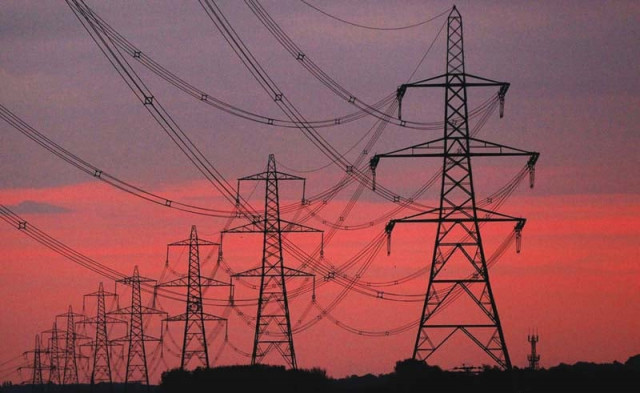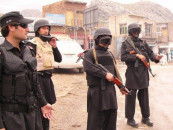Diplomacy of hospitality: PM to host lunch to settle corridor route controversy
Khawaja Asif says less than a quarter of economic corridor benefits to go to Punjab.

The minister also said that the bulk of power projects associated with CPEC would not be in Punjab, pointing out that Gilgit-Baltistan would have an additional 11,917 megawatts. PHOTO: REUTERS
As criticism over the alleged change in the route of the China-Pakistan Economic Corridor (CPEC) intensifies, Prime Minister Nawaz Sharif has invited leaders from all political parties to lunch on Wednesday (today) to address their concerns.
“The prime minister has called all parties’ leaders over for lunch to discuss the economic corridor,” Water and Power Minister Khawaja Asif told a news conference in Islamabad on Tuesday.
The corridor has attracted considerable criticism after allegations emerged that the route has been changed to avoid most cities in Balochistan and Khyber-Pakhtunkhwa and instead pass through Punjab and Sindh. Historically, Pakistan’s transportation infrastructure has been relatively more developed in the eastern two provinces and far less developed in the western two provinces. CPEC was seen by many in the smaller provinces as an opportunity to correct that historical imbalance, an opportunity that many thought the Nawaz Administration might squander.
The debate over CPEC has been sharpened by the fact that the Punjab government is run by the ruling PML-N while its main rival, the PTI, is in office in K-P. The rivalry between the two centre-right parties was the subject of much of Khawaja Asif’s press conference on Tuesday.
Asif alleged that the PTI-led government in K-P was using the economic corridor for political gain and urged PTI leadership to avoid using national issues for such purposes. He added that the federal government has been in talks with K-P Chief Minister Pervaiz Khattak over the matter.
“They have given us nine questions about the Economic Corridor including funding from China which they alleged was not an investment but loans,” he said, adding that all agreements which were signed during Chinese President Xi Jingping’s visit were investments and not loans.
Asif also addressed the allegation that the bulk of the Chinese-funded projects would be located in Punjab. “Punjab’s share will be 25% whereas 75% of the projects under CPEC will go to other provinces,” he said.
The minister also said that the bulk of power projects associated with CPEC would not be in Punjab, pointing out that Gilgit-Baltistan would have an additional 11,917 megawatts in installed power generation capacity, Sindh would get 10,250MW, K-P 9,410 MW, Punjab 5,000MW, Azad Jammu and Kashmir 4,029MW, and Balochistan 2,720MW. He also added that the federally owned power distribution companies were providing uninterrupted power supply to industrial areas in K-P for the last eight months.
Asif also took potshots at the PPP government in Sindh, pointing out that the provincial government there is the biggest defaulter of electricity bills, owing Rs66 billion in unpaid bills.
He also clarified that the ban on solar and wind power projects was a temporary measure that would last until the government was able to revise the tariff structure based on the dramatic reduction in costs of energy from those alternative sources.
Published in The Express Tribune, May 13th, 2015.
Like Business on Facebook, follow @TribuneBiz on Twitter to stay informed and join in the conversation.



















COMMENTS
Comments are moderated and generally will be posted if they are on-topic and not abusive.
For more information, please see our Comments FAQ